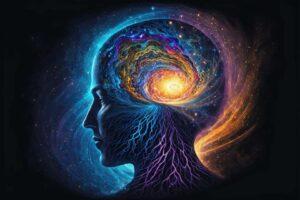Creativity is the ability to generate, develop, and express original and valuable ideas, solutions, or works of art. It involves the process of thinking and problem-solving in novel and imaginative ways, transcending conventional boundaries, and finding innovative approaches to challenges. Creativity is not limited to artistic endeavors; it plays a crucial role in various fields, including science, technology, business, and education.
The creative process often includes stages such as idea generation, incubation, evaluation, and implementation. Research suggests that creativity can be cultivated through deliberate practice, exposure to diverse experiences, and the development of cognitive flexibility and risk-taking attitudes.
Creativity
The key components of creativity include:
Originality: Creative ideas or solutions are unique, innovative, and not a mere replication of existing concepts.
Value: Creative output should be valuable, meaningful, or useful in some context, whether it is practical, aesthetic, or intellectual.
Divergent thinking: Creativity involves the ability to think outside the box, exploring multiple possibilities and perspectives.
Cognitive flexibility: The capacity to adapt and change one's thinking patterns or strategies when faced with new information or challenges is essential for creativity.
Yes, creativity can be developed and enhanced through various strategies, such as:
Deliberate practice: Engaging in activities that challenge and stretch your creative skills can help improve your creative abilities over time.
Exposure to diverse experiences: Encountering different cultures, ideas, and perspectives can foster creativity by expanding your mental horizons and providing new inspiration.
Developing cognitive flexibility: Practicing activities that require mental agility, such as solving puzzles or learning a new language, can enhance cognitive flexibility and support creative thinking.
Embracing risk-taking and failure: Being open to taking risks and learning from failures can help overcome creative blocks and facilitate the generation of innovative ideas.
Collaborating with others: Working with others can stimulate creativity by exposing you to new ideas and encouraging the exchange of diverse perspectives.
Creativity is an essential component of effective problem-solving, as it allows individuals to:
Generate multiple solutions: Creative thinking enables the exploration of various alternatives and perspectives, increasing the likelihood of identifying an effective solution.
Overcome barriers: Creativity helps individuals think beyond conventional constraints and limitations, facilitating the development of innovative approaches to challenges.
Adapt to change: In dynamic and complex situations, creativity supports the ability to adapt and modify solutions as new information or circumstances arise.
Enhance decision-making: By considering a diverse range of options and weighing their potential outcomes, creative problem-solving can lead to more informed and effective decision-making.
Related Semantic Entities for Creativity











